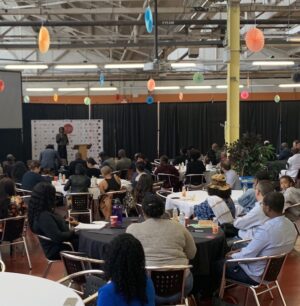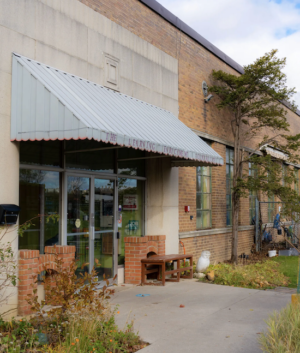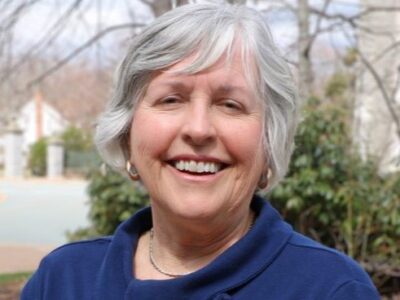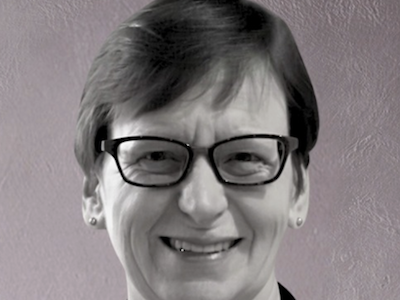
Victor Beausoleil is the founder of Social Economy Through Social Inclusion (SETSI) and board president of the Canadian CED Network.
PANL Perspectives spoke to Victor Beausoleil about leaders in social enterprise in Canada, especially organizations doing extraordinary work with newcomers and youth in the nonprofit and private sectors. Beausoleil is the founder of Social Economy Through Social Inclusion (SETSI), co-founder of Canadian Centre for NonProfit Digital Resilience, board president of the Canadian Community Economic Development Network and a Board Chair of the Tribe Network, among other leadership roles in the sector.
Question: How do you define social enterprise?
Victor Beausoleil: Social enterprise for me is when the well-being of communities, families, individuals, our planet, are the main drivers of activities, not profit. In a social enterprise, people pay more for a product or service because they know the social impact and ramifications, and patrons, donors or investors are in it to create employment and benefits for communities and the planet.
In a social enterprise, profit is a factor, but not a key performance indicator. We have to do better at getting this across. We have to do better at creating greater cultural context around the importance of social enterprises, because if a business isn’t doing something that’s empowering people, employing people, supporting individuals, families, communities, helping our planet, then it shouldn’t be in business. Being part of the extractive economy, with profit as the main driver, is what’s killing our planet, is what’s terminating us as a species.
Q: In terms of social enterprise and in particular, entrepreneurship with newcomers and youth, what approach works best in your experience?

The SETSI coalition is a group of young executives, social entrepreneurs, community organizers, economists, researchers, lawyers and social justice advocates.
Victor Beausoleil: When working with newcomers and young people around social entrepreneurship and entrepreneurship in general, you have to go to first principles. A lot of times, there’s a racist assumption that folks coming from different parts of the world don’t have experience with social enterprise or entrepreneurship when actually, a lot of people come from countries that organize their economic relationships very differently. They have the Susu framework, box hand framework, table banking and other ways that people put resources together to accomplish a goal. These initiatives lean towards mission-driven businesses, because the entrepreneurs actually have to innovate or pivot — and have to be very adaptable.
My mother was a susu banker for 39 years. A lot of her friends who were starting their first businesses, or trying to get their first vehicles, came together, organized economic relationships and started. That informal economy is what drives folks who don’t have access to capital in the same way that others have access. So, the assumption that newcomers and refugees aren’t familiar with models to advance a business is a wrong assumption. Lived experience has to be valued, weighed and assessed.
After that, best practices and promising models from various regions have to be connected. Social enterprise, social innovation or social impact shouldn’t be seen only through a white or Eurocentric lens. If we’re really trying to engage newcomers, immigrants and refugees, we have to use a lens of justice, access, inclusion, diversity, decolonization and equity.
If you’re going to build capacity around social enterprise, or around business development in general, you have to give them practical, hands-on opportunities — and that requires immersive activities, mentors who are relatable to their lived experiences and cultural contexts, and a lot more.
Q: What are a few outstanding nonprofit organizations in Canada that are serving newcomers and youth?
 Beausoleil: Definitely OCASI, the Ontario Council of Agencies Serving Immigrants, which has 200 community-based members and is a collective voice for immigrant-serving agencies. They’ve been doing phenomenal work for a long time. Debbie Douglas, the Executive Director, leads the organization. OCASI has been able to harmonize the supply and demand side of capital to advance not just newcomers and refugees, but racialized newcomers and refugees. A lot of times, folks don’t look at intersectionality as it relates to service provision, resource allocation and opportunity provision — and OCASI looks at all that.
Beausoleil: Definitely OCASI, the Ontario Council of Agencies Serving Immigrants, which has 200 community-based members and is a collective voice for immigrant-serving agencies. They’ve been doing phenomenal work for a long time. Debbie Douglas, the Executive Director, leads the organization. OCASI has been able to harmonize the supply and demand side of capital to advance not just newcomers and refugees, but racialized newcomers and refugees. A lot of times, folks don’t look at intersectionality as it relates to service provision, resource allocation and opportunity provision — and OCASI looks at all that.
I would also flag the Learning Enrichment Foundation (LEF), which has been doing exemplary work for almost 40 years. Their executive director, Peter Frampton, has led the organization for a significant amount of time and has found ways to edify and build the capacity of newcomers, refugees and immigrants in York South-Weston, one of the poorest ridings in the country, and also, one of the wealthiest in terms of diversity and richness of culture. I’m excited about what LEF has been doing — best practices and promising models — with communities there.
Also, our colleagues at RADIUS, a social innovation hub at Simon Fraser University, have built out some incredible labs for newcomers and refugees, and these labs are thought provoking, innovative and have deep social impact.
 And Windmill Microlending is a national charity that provides loans to skilled immigrants, refugees and newcomers who don’t have credit ratings or collateral. The organization was started by a psychologist who noticed that many of the janitorial staff at the hospital where she worked were internationally trained professionals who couldn’t practice their professions due to Canadian obstacles, such as high licensing fees. Windmill is committed to supporting immigrants and refugees on their journey to success. They offer affordable loans and professional development resources to help pay for upskilling, accreditation, education, training and living costs. They also support credential recognition and assist with integration into Canada’s economy.
And Windmill Microlending is a national charity that provides loans to skilled immigrants, refugees and newcomers who don’t have credit ratings or collateral. The organization was started by a psychologist who noticed that many of the janitorial staff at the hospital where she worked were internationally trained professionals who couldn’t practice their professions due to Canadian obstacles, such as high licensing fees. Windmill is committed to supporting immigrants and refugees on their journey to success. They offer affordable loans and professional development resources to help pay for upskilling, accreditation, education, training and living costs. They also support credential recognition and assist with integration into Canada’s economy.
Q: Where are the best spaces for social entrepreneurship for newcomers in Canada? Are they cultural associations and religious charities?

Read more stories in the PANL Perspectives series, “Leadership in Working with Newcomers and Youth,” introduced by Anil Varughese, Graduate Supervisor of the MPNL program: https://carleton.ca/panl/leadership-in-working-with-newcomers-and-youth
Beausoleil: I don’t think any one group has the solution. It’s not just the cultural associations and mosques, synagogues or churches. It’s not only the community centres or nonprofits and charities. Success requires public, private and philanthropic resources. There’s more than $200 billion in capital in philanthropy in Canada, so philanthropists play their roles in terms of leveraging catalytic capital.
The public sector is crucial, as it provides scaffolding, or social safety nets, to ensure that new Canadians who are vulnerable aren’t falling through because they’re not able to access services from the government.
And the private sector plays a huge role as well — and a lot of folks don’t realize this. There are many parts of the private sector that are seeking, actively seeking, a steady pipeline for employment opportunities. For decades, they’ve been able to drive economic value by engaging and hiring newcomers, refugees and immigrants.
Q: Who or what else it outstanding in terms of social enterprise in Canada?
 Beausoleil: The Afro-Caribbean Business Network (ACBN) has a remarkable program, specifically around newcomers, refugees and social entrepreneurship. It provides Black businesses with resources to start, grow and scale up. It was founded by Ryan O’Neil Knight, who also runs a social enterprise called Detailing Knights, a mobile, waterless, car-wash enterprise that recently won on Dragon’s Den and that hires newcomers, refugees and folks who were incarcerated. He literally just hired a brother from Ghana, about four months ago, and changed his life as he went through a visa process.
Beausoleil: The Afro-Caribbean Business Network (ACBN) has a remarkable program, specifically around newcomers, refugees and social entrepreneurship. It provides Black businesses with resources to start, grow and scale up. It was founded by Ryan O’Neil Knight, who also runs a social enterprise called Detailing Knights, a mobile, waterless, car-wash enterprise that recently won on Dragon’s Den and that hires newcomers, refugees and folks who were incarcerated. He literally just hired a brother from Ghana, about four months ago, and changed his life as he went through a visa process.
 When I think of a social enterprise, I think of Buy Social Canada right away. It was founded by our brilliant colleague, David LePage, who passed away a few months back. He wrote a book called Marketplace Revolution: From Concentrated Wealth to Community Capital.
When I think of a social enterprise, I think of Buy Social Canada right away. It was founded by our brilliant colleague, David LePage, who passed away a few months back. He wrote a book called Marketplace Revolution: From Concentrated Wealth to Community Capital.
And have you heard of Eric Hoskins? He was a government minister in 2015 or 2016, and he developed a social enterprise strategy for Ontario. It wasn’t used, even though it contained best practices that came from various jurisdictions within Canada.
If we could use jewels like these, from the past, we could create a future that’s more accessible and just for everyone.
Photos are courtesy of Victor Beausoleil, SETSI, LEF and Vanguard News. Beausoleil is on LinkedIn.
Sign up for PANL Perspectives, MPNL’s free newsletter.
Wednesday, November 20, 2024 in For homepage, Newcomers & Youth, News & Events, Social Finance
Share: Twitter, Facebook




